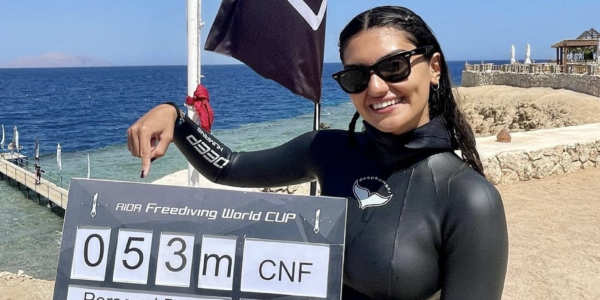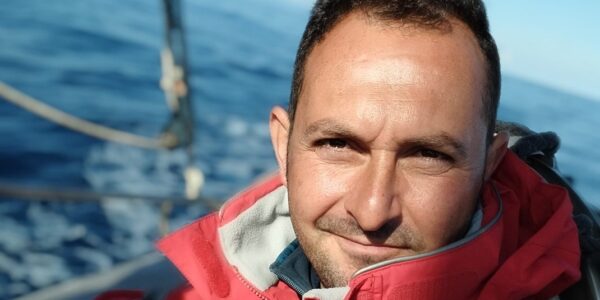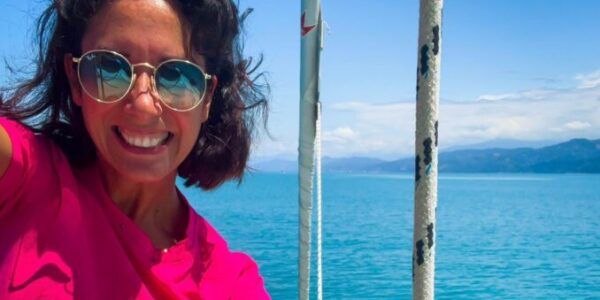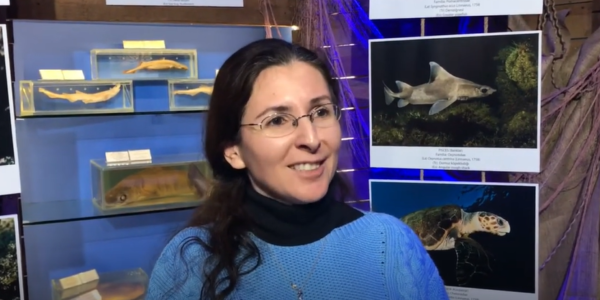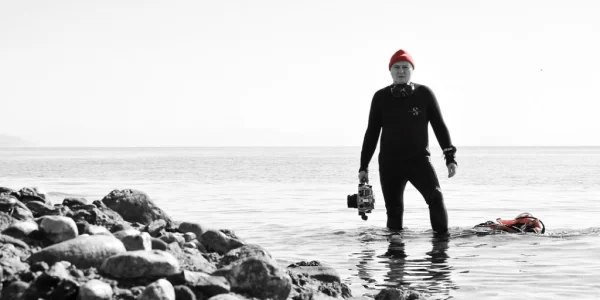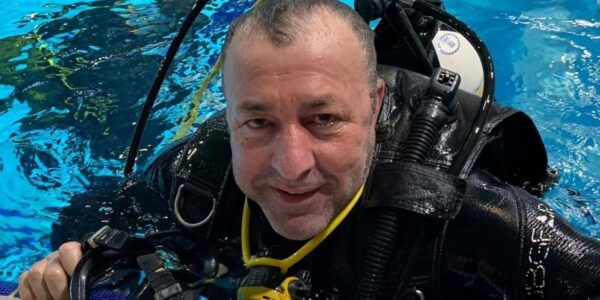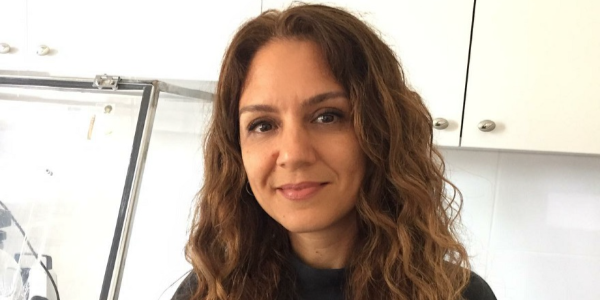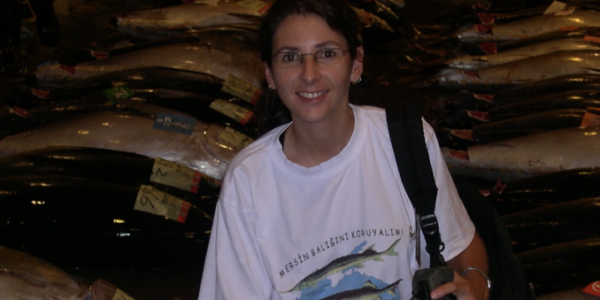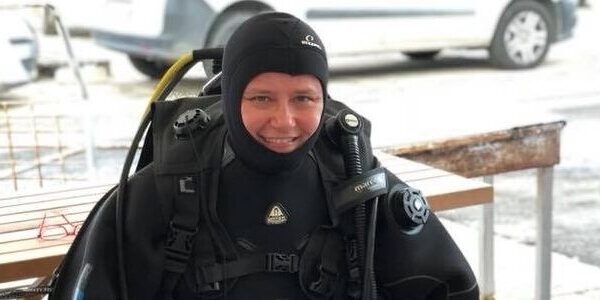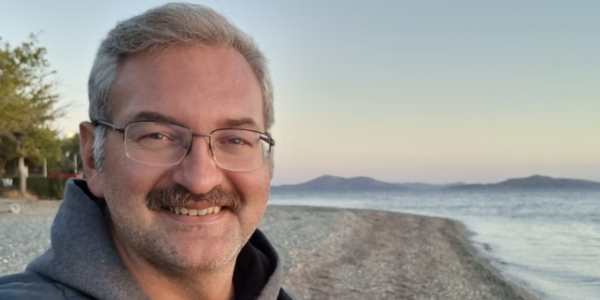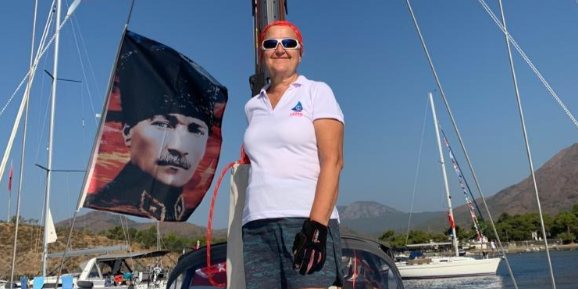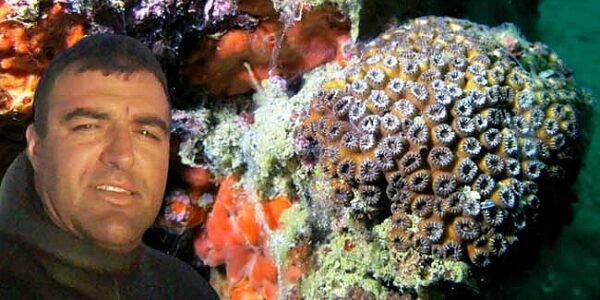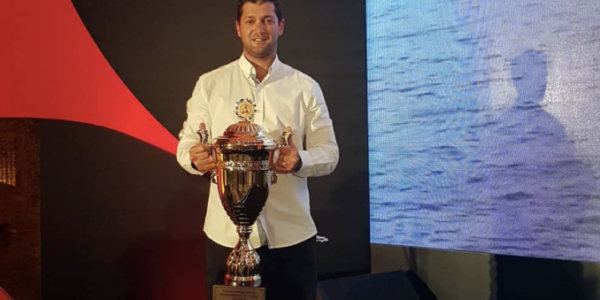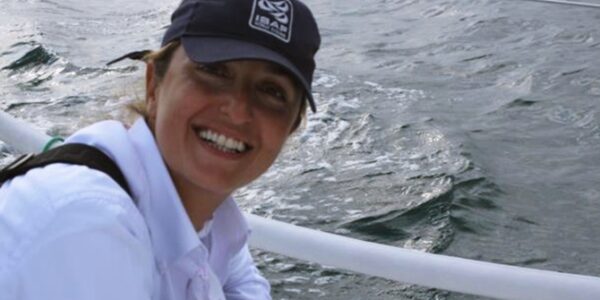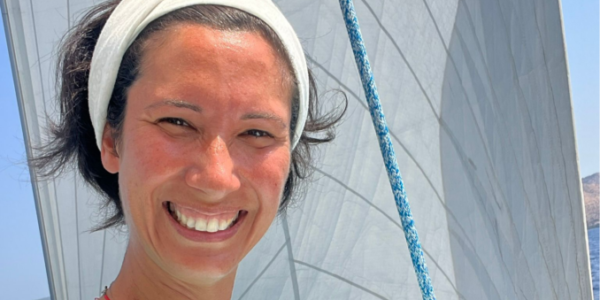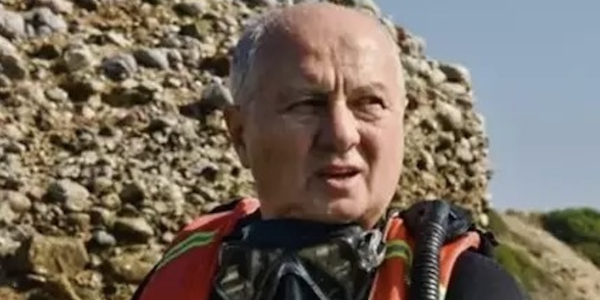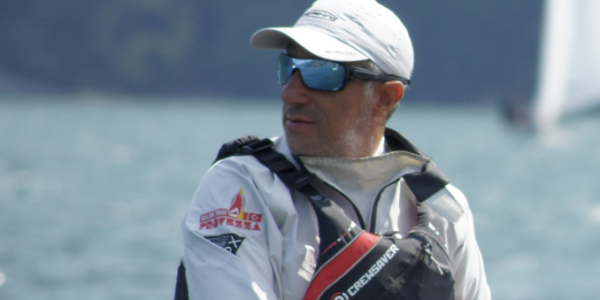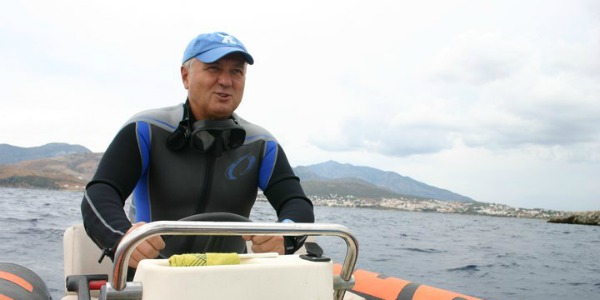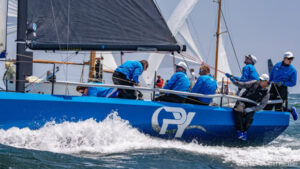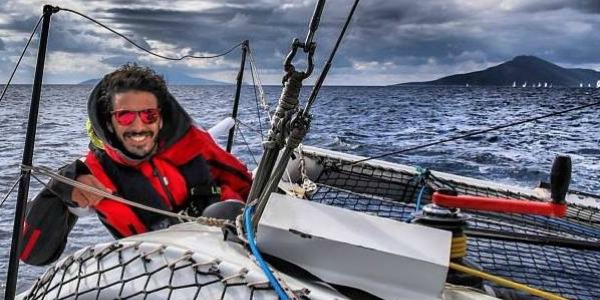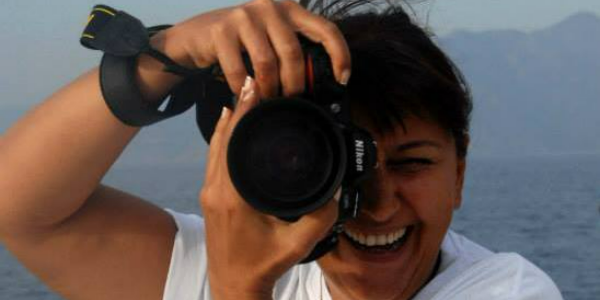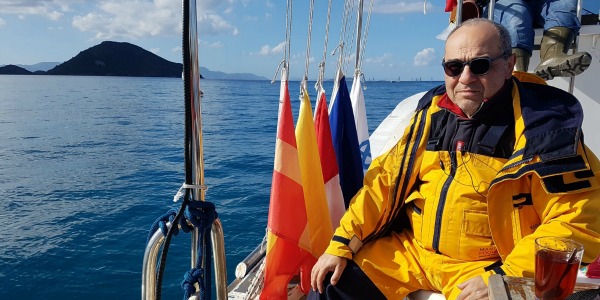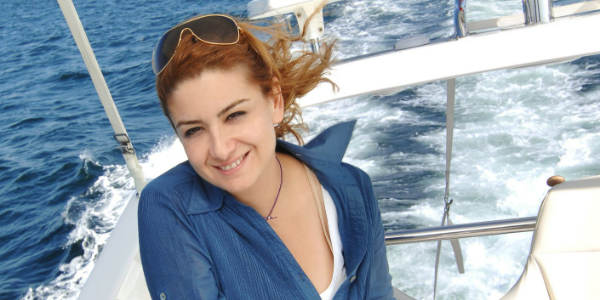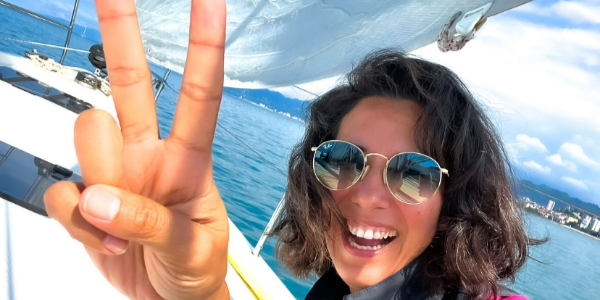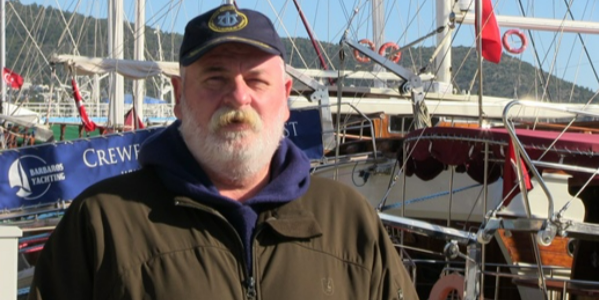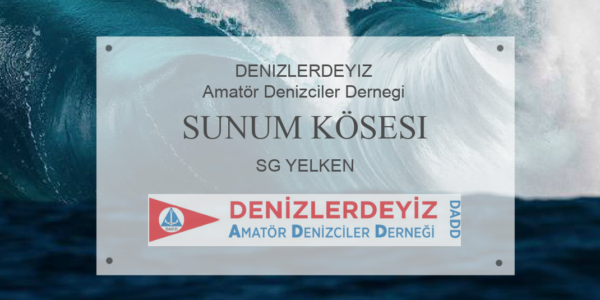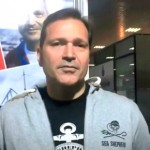The 170th New York Yacht Club Annual Regatta featured an historic fleet of more than 150 boats when the racing was held June 14-16 in Newport, RI. After a successful Around the Island Race on day one, light winds limited some of the racing for the remaining two day schedule.
For the top-flight competitive fleet in ORC B, their four race series fit into the light winds on the final day where David Team’s TP52 Vesper squad fought with rival Fox, skippered by Victor Wild, doing most everything as right as can be expected on a very challenging day.
“We felt in the first two races, when it was really light, 6 knots and under, that we had a click of pace on people,” says Team. “But then the wind shifts come into play with that light of a breeze. The first race we got it called right, the second race we were on the wrong side of the shift, but our speed was still good all day.”
As the seabreeze filled for Races 3 and 4, Fox found its groove. Going into the leeward mark rounding of the final race, it appeared everything was going the way of Wild’s crew, which had a two-point lead in the standings and was ahead in the race.
“Fox was leading, we were trying to do our best to figure out how to pass them,” says Team. “They fouled [a boat from another fleet] and they did the right thing, a 360, and that kind of just reshuffled the race.”
In the five-boat ORC B, with a preponderance of professional sailors across the fleet, one small mistake can make a huge difference. In this case, it dropped Fox from first to fourth in the race, and from first to second in the regatta.
Team has actively raced his 52-foot Vesper for four-plus years. While he’s based on the West Coast, his sailing has been concentrated further east, Florida in the winter and then splitting his summer regattas between the Great Lakes 52 circuit in the Midwest and Newport. This year, with the ORC World Championship scheduled for early fall, is a Newport summer, and the Annual Regatta is one key step on the way toward contending for a world championship in the fall.
“It’s a process,” Team says. “We think we’re on the path to where we hope to be. We still have some things to accomplish. We’ve got a couple of very strong competitors that we are trying to beat. Sometimes we do, sometimes we don’t. We’re all trying to get better for September/October.”
While Team has his eyes squarely set on ORC competition, that’s definitely not the case for Drew Freides. A devoted one-design skipper, Freides entered his Cape 31 Pacific Yankee in the Annual Regatta hoping that enough of his fellow Cape 31 owners would follow suit and he would enjoy some one-design racing in the up-and-coming class. When the class fell short of what’s required for a one-design start, the Pacific Yankee team and three other Cape 31s were moved to ORC D.
“It definitely had us on two wheels a little bit,” says Freides, a former world champion in the Melges 24 and Melges 20 classes. “We weren’t prepared for handicap racing, so we had to adjust our sailing. We wanted to beat our fleet [of Cape 31s]. But the boat is pretty competitive under ORC. We changed our expectations after we got off to a good start and started racing against the rest of the fleet as well.”
Freides and his team were super consistent through three races, taking two seconds and a third, winning the class by 3 points. As the smallest and lightest boat in the fleet, successfully racing the Cape 31 required some strategic concessions.
“Tactically, it made you think differently,” says Freides. “We couldn’t put ourselves in spots that could compromise us because the bigger boats were faster upwind. Once we turned the corner, we could sail away from them pretty easily.”
In second and third in the overall standings were two other Cape 31 teams, which is somewhat of a surprise given that handicap rules have traditionally not been kind to lighter, smaller, faster boats.
“I haven’t done a lot of homework on the ORC rating of the Cape 31,” says Freides. “But these boats seem to rate really well under ORC. [Cape 31 designer] Mark Mills has done a fabulous job. I’m surprised more people haven’t bought these boats because they’re just a lot of fun.”
The largest fleet at the regatta was the IC37 class, with 24 boats. The fleet this year has been buoyed by nearly 10 new teams. But after the dust settled this weekend, the name at the top of the results was a familiar one, Steve Liebel and his New Wave team. With a fifth, a ninth and a second in the crucial final race, New Wave finished the regatta tied on points with Daniel Thielman’s Kuai team, winning the regatta via a tie breaker.
“Sailing was phenomenal, a little tricky today, shifty and light, but a good time,” says Liebel. “Sometimes you were looking like a hero, sometimes you were a zero. We were both today. I think we were second-to-last in the first race today, but climbed back. In the end, it was a good day.”
Last year, the IC37 fleet usually numbered around 15 boats. This year it should be greater than 20 in all major regattas, which means winning requires an extra degree of caution.
“A fleet with 12 to 15 boats is a little more forgiving,” says Liebel. “You have a bad start or have an error, all of a sudden you’re in 10th. You pass 5, you’re in the top 5, so you’re ok. In 23 or 24 boats, you get deep—and every top boat out there was deep at some point—and it’s hard to get back to the top half of the fleet.”
While the other four boats in the top five were all teams with previous experience in the class, Liebel was encouraged by the three new teams—Glory from the U.S. Coast Guard Academy, Nathan Allman’s Barefoot team and Bill Zartler’s Voodoo Too—that rounded out the top 10.
“It’s exciting to see those new people coming into the class and doing well,” says Liebel. “A lot of people, a lot of different boats, had some very good finishes. It’s great to have those people come into the class, see success and hopefully they’ll want to come back.”
Event information – Race details – Results
Source: scuttlebutt – https://www.sailingscuttlebutt.com/2024/06/16/challenges-for-170th-annual-regatta/
